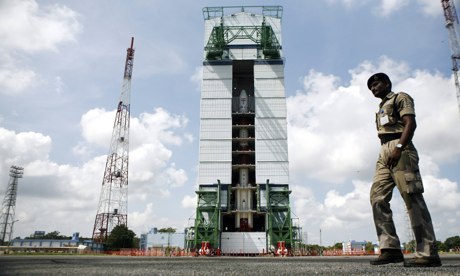America Has Much to Learn from India's Successful Mars Probe, But I Doubt that It Will
 |
| India Sends Successful Mars Probe |
When I first heard that India had sent a satellite to Mars, my eyes welled up with tears of pride. Now, I wasn't expecting that reaction (but of course I wasn't expecting that news either). My emotions seemed rather silly. I'm not from India. I'm an African-American, who cannot pretend to have had any connection to their successful Mars orbital. So, it has taken me a few days to sort out my excitement.
NASA has had its successes of course. In fact, NASA's new orbital arrived around Mars around the same time as India's smaller, cheaper version. However, the United States is a wealthy but fragmented society. The per capita GDP for India is $1,503/year. In the U.S. it is $53,143. But half the college-educated Americans believe that the earth is 5,000 years old and that the 7 billion humans who inhabit the planet today, are the descendants of a couple named Adam and Eve, for whom Eve, is a clone of Adam, having popped out of one of his ribs. A fair segment of this slice of society still insists that the moon landing never took place, but was rather a conspiracy staged by Hollywood and sponsored by Walt Disney Studios.
NASA has had its successes of course. In fact, NASA's new orbital arrived around Mars around the same time as India's smaller, cheaper version. However, the United States is a wealthy but fragmented society. The per capita GDP for India is $1,503/year. In the U.S. it is $53,143. But half the college-educated Americans believe that the earth is 5,000 years old and that the 7 billion humans who inhabit the planet today, are the descendants of a couple named Adam and Eve, for whom Eve, is a clone of Adam, having popped out of one of his ribs. A fair segment of this slice of society still insists that the moon landing never took place, but was rather a conspiracy staged by Hollywood and sponsored by Walt Disney Studios.
India has a far greater gap between rich and poor, but a far more cohesive sense of how it sees its future, as an emerging leader in science and technology. Why do I think that at this moment in history we could learn a few lessons from their example?
Comments